August 3, 2017
Immigrants & Economy: Profiles of Virginia Business Owners
Local shops and services that provide for everyday needs are cornerstones of thriving communities, and foreign-born Virginians play an important role in starting and maintaining these “Main Street” businesses. From grocery stores to restaurants to tech firms, these immigrants make substantial contributions to the state’s economy. Meet five Virginia business owners who have brought their dreams to this country and brought their dreams to life through perseverance and hard work.
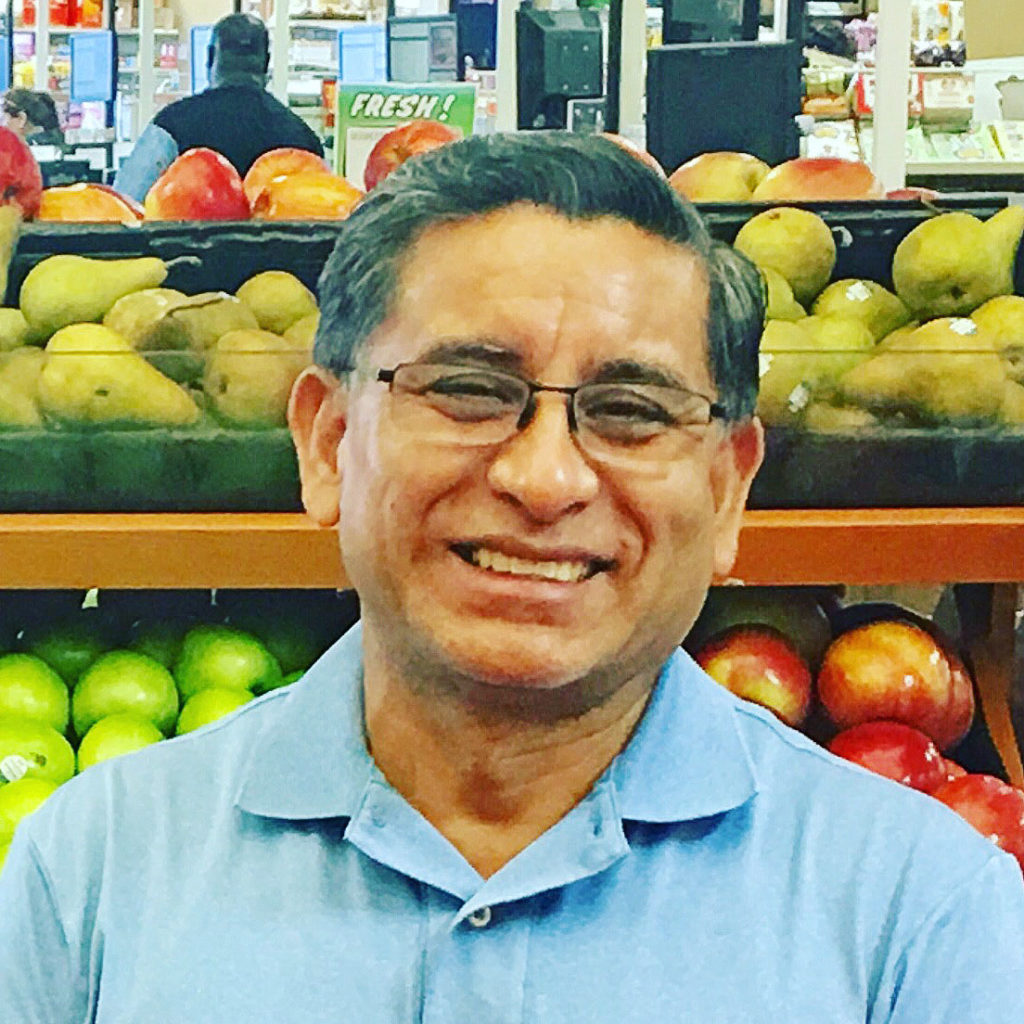
Carlos Castro: Todos Supermarket 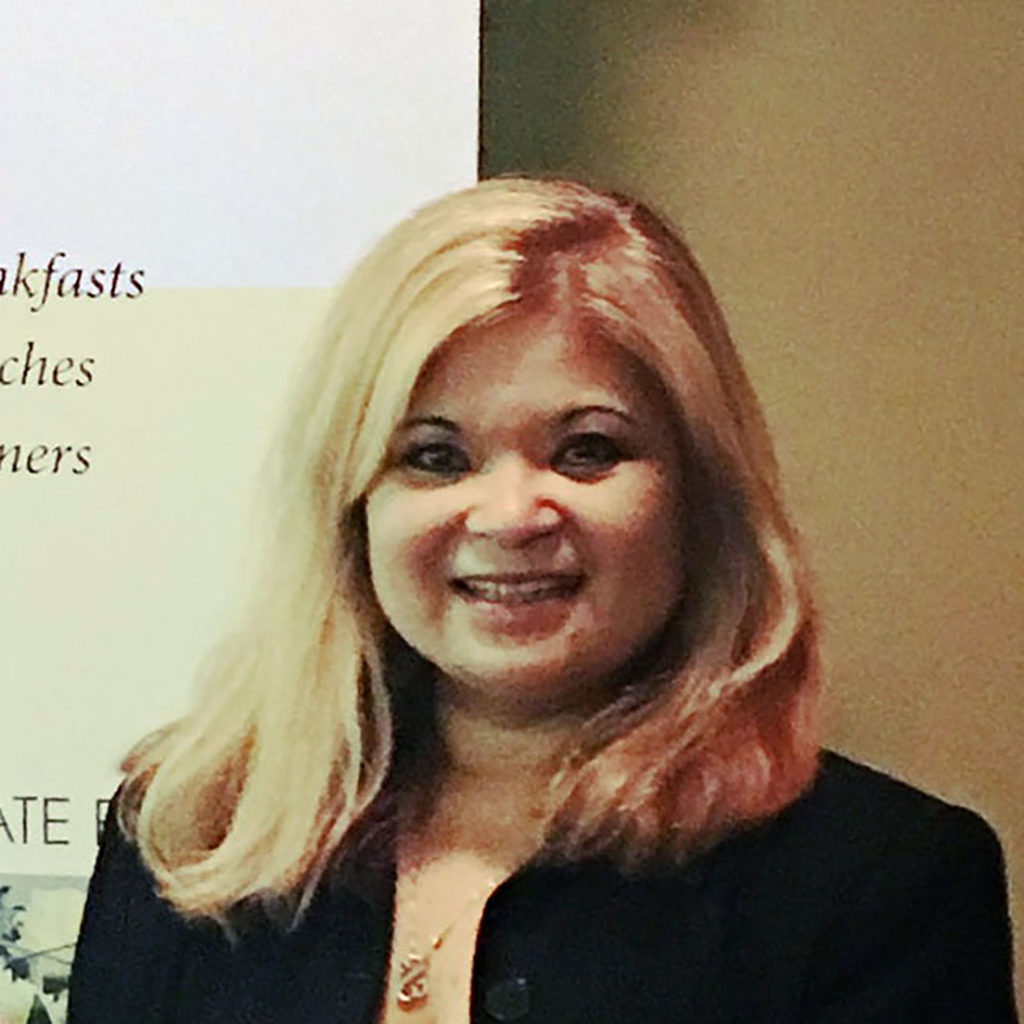
Audrey Lustre: Silver Spoon Catering 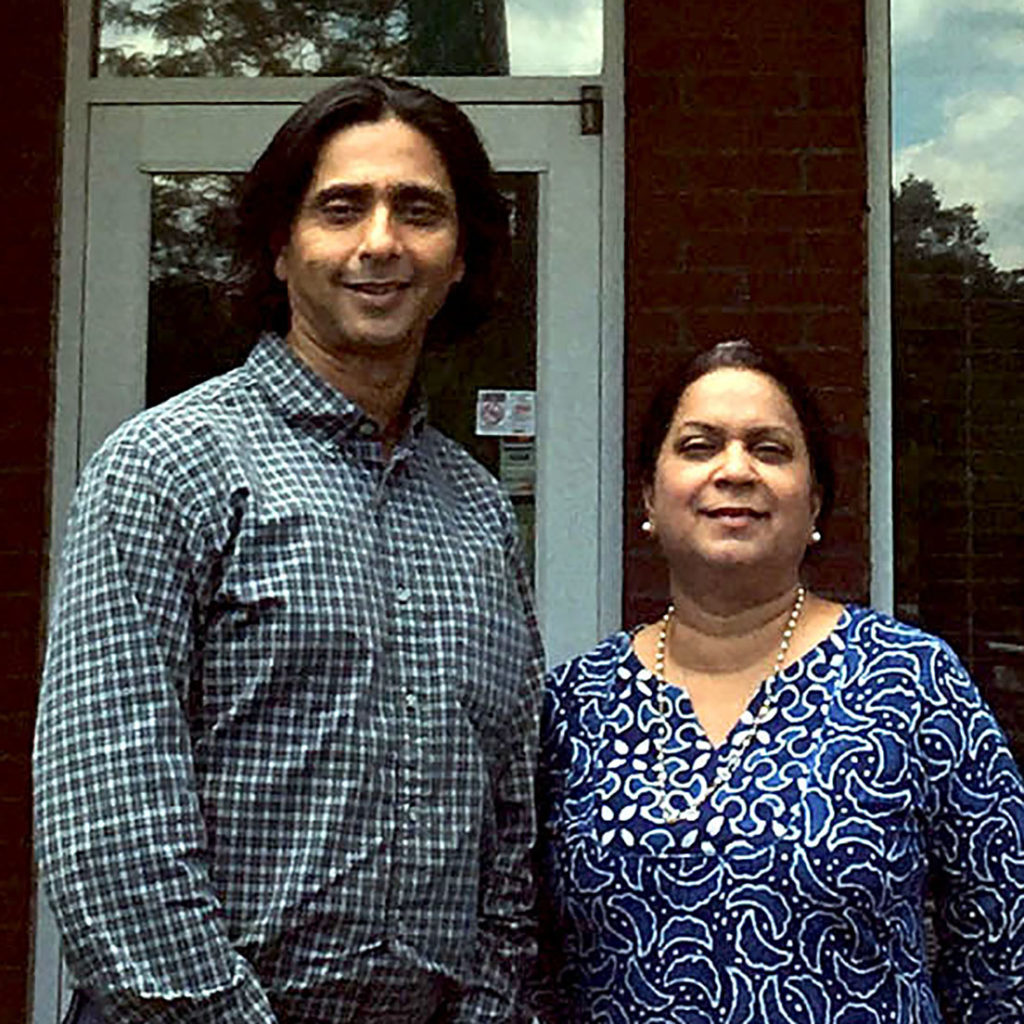
Ram Pai: Malabar Indian Cuisine 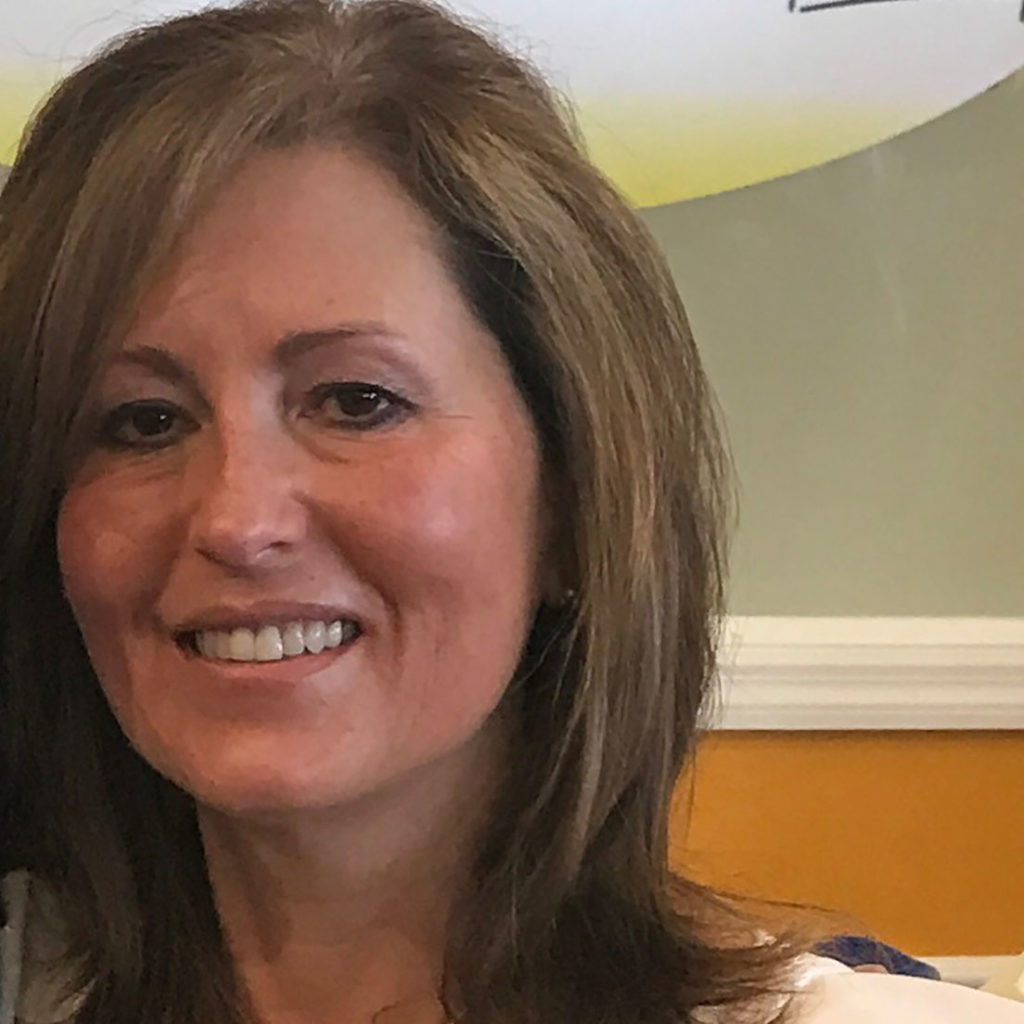
Jackie Krick: ECU Communications 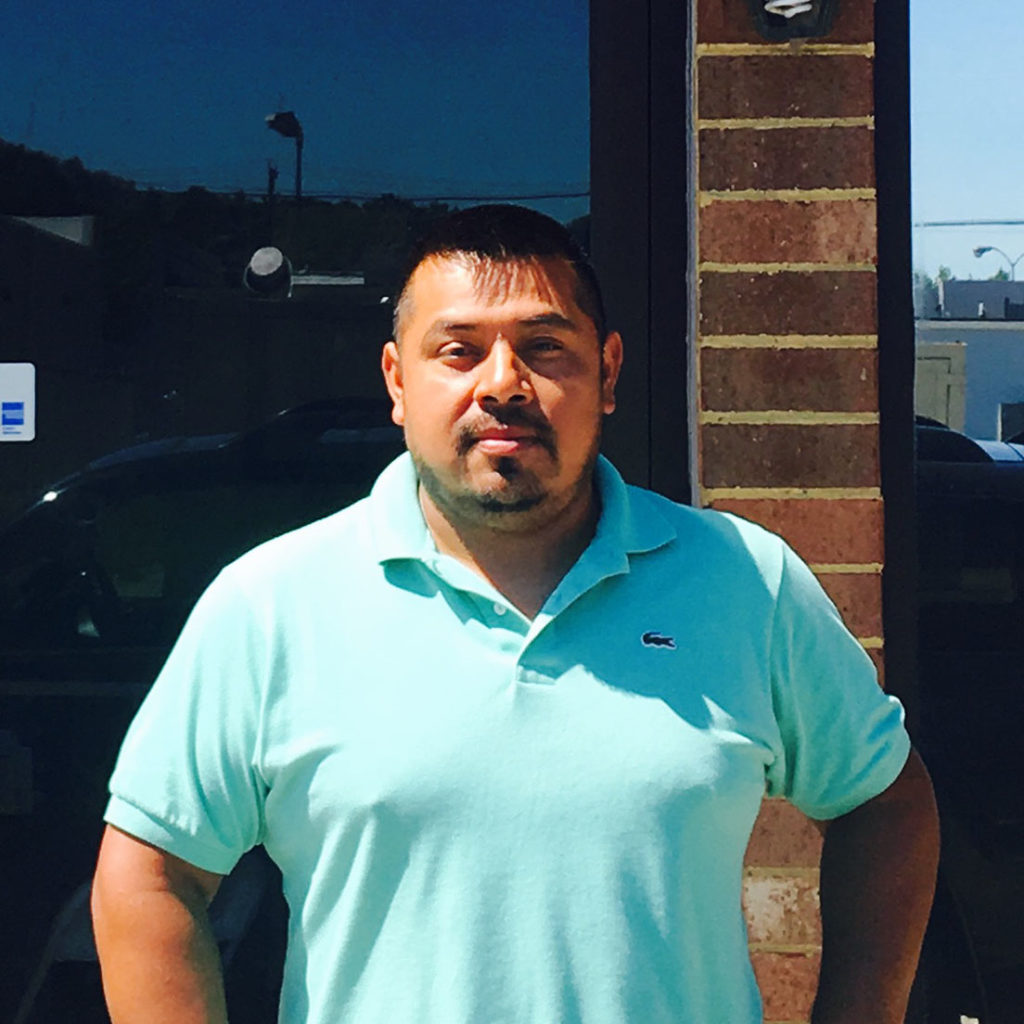
Alberto Tobar: Party Zone
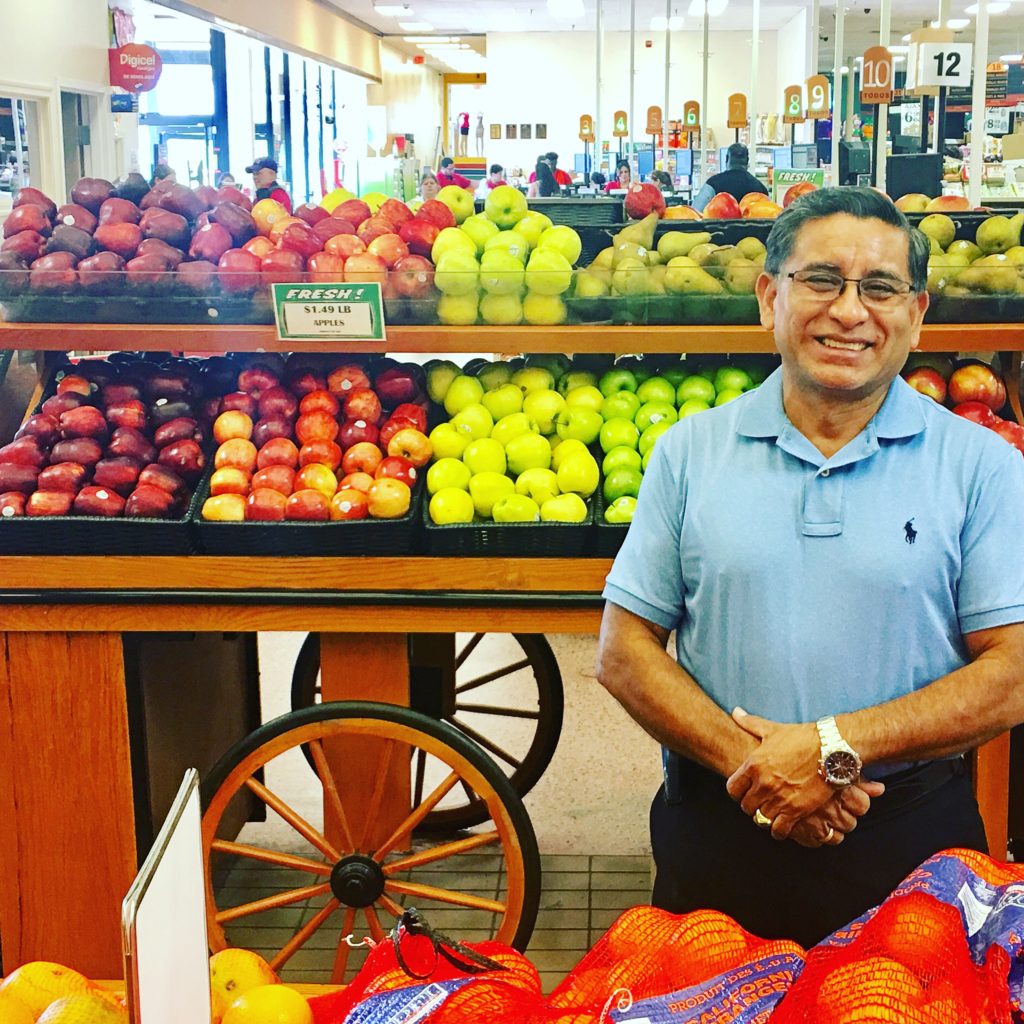
Carlos Castro
Todos Supermarket
(founded in 1990)
Woodbridge, Virginia
For the first 10 years operating their neighborhood market, Carlos Castro and his wife thought they had made a big mistake. “We thought it would be easy but obviously we didn’t know what we were doing,” he says. During that time he had to maintain a second job and at times could only make rent using credit cards. “It was a scary time.”
But they saw a need in their community for their business and they persevered. Today, Todos is prosperous and has become an anchor in the community, providing services ranging from grocery to a post office, money wiring, and business coaching all within the same building. While immigrants comprise 22 percent of the population of the DC metro area, immigrants made up 56 percent of “main street” business owners in the metro area in 2013. These businesses — which are defined as those that typically have a physical storefront and customers — are particularly critical in revitalizing and sustaining aging business districts.
At an early age, Carlos’ dad instilled in him the values of giving back and helping others. “I got that from my dad,” he says. “My father use to say when you see somebody in need, don’t wait until you are asked for help. We were supposed to jump in and help.” Today, Carlos gives back to the community by speaking at schools, local colleges, career days, and participating in Chambers of Commerce, faith-based organizations, and boards of nonprofits. Carlos says he “want[s] to be that voice of [his] community [at] the table.”
Carlos and his wife saw an opportunity early when they chose Woodbridge for their store location. They speculated that the community was growing rapidly and would need additional services to meet their needs. “Luckily, we were right,” he says.
Carlos says has seen his community grow over time. “As time has gone by, more Lations are buying property in the county and are still buying,” he says. “The Hispanic [community] has grown … and has matured.” And recent anti-immigrant sentiments have only brought the community closer together, he says.
Carlos and his wife had thoughts of opening more supermarkets, but decided instead to spend time helping other business owners get off the ground. “I have always tried to strike a balance” between business and being “a community man,” he says. One of the main reasons he decided not to expand was that he wanted to “make sure that [his] employees are well paid and have the safety of a good job.”
Today Carlos is looking forward to devoting more of his time to mentoring others and sharing the expertise of his team. He wants to help people learn the ins and outs of starting businesses and becoming prosperous contributors to the community.
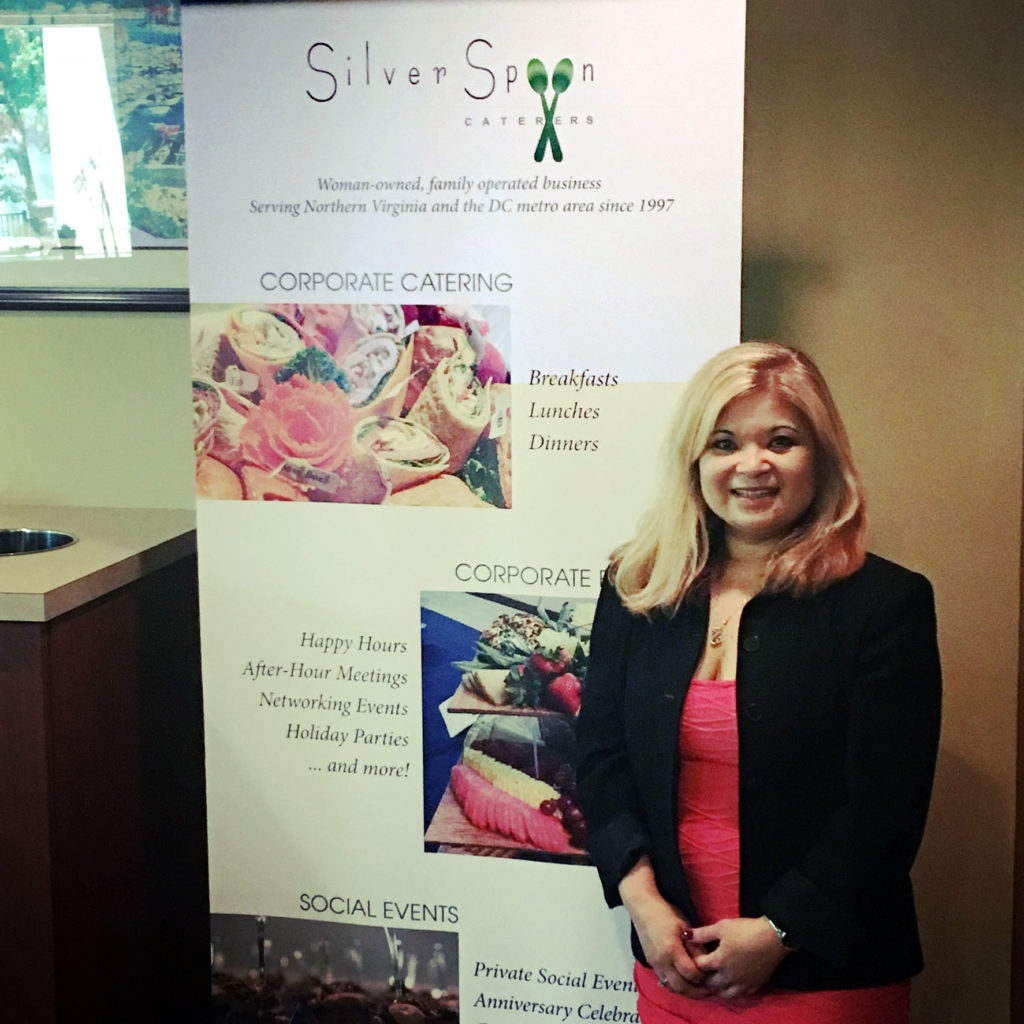
Audrey Lustre
Silver Spoon Catering
(Founded in 1997)
Fairfax, Virginia
At six years old and in awe of fried ice cream, Audrey Lustre, a native of the Phillippines, knew she wanted to be a business owner in the food industry. The magic, deliciousness — and the juxtaposition of hot and cold — inspired her future career and led to her decision to ultimately provide catering services to local Fairfax businesses. She often looks to her upbringing and her family’s move from the Philippines to California for strength and motivation.
“It’s the reason we came here,” she says. “We came here as a family to better ourselves.”
Audrey began her college education in electrical engineering, and eventually settled on accounting. Crunching numbers from nine to five, however, was not what she wanted for herself. One day an opportunity arose to own a small deli and coffee shop in a mostly-vacant commercial strip, and she took it, setting out to achieve her childhood dream.
At the beginning, she was the janitor, the cook, the pastry maker, and the cashier. “My parents always said ‘strive to do the best and never give up’, and that’s how I always led my whole life,” she says. Failure was not an option. Instead, Audrey chose to work up to 20 hours a day in order to succeed. She is still succeeding. Since being approached by local businesses to cater meetings and lunches, Silver Spoon has become primarily a catering service and has already moved once to double its physical space. No longer a one-woman staff, Silver Spoon Catering now provides employment opportunities in an area of the community that has seen rapid growth both residentially and commercially.
Both in business and in the community, Audrey believes that you should not just join, but be truly involved. Audrey is a contributing member of many associations including the Virginia Asian Chamber of Commerce, the Greater Reston Chamber of Commerce, Tyson’s Regional Chamber of Commerce, and the Northern Virginia Builders Industry Association. For some, she also serves on committees and boards. Her motive for participating in all of these groups lies in her desire to give back to the community. Using her cultural knowledge from growing up as an immigrant in the United States, Audrey seeks to “form a bridge and give back” by helping to support minority-owned businesses. Audrey also sponsors and volunteers with many local and national organizations, including Wounded Warriors, Renew Hope, Bite Me Cancer, HomeAid Northern Virginia, Youth for Tomorrow, and St. Jude’s.
While growing up, Audrey was always “getting into something” and her mother would jokingly comment, “Audrey, you’re a hopeless cause.” True to the spirit of her youth, Audrey anticipates “getting into something”, perhaps something bigger and perhaps something different.
Within three to five years, expect Silver Spoon Catering to be in more locations. But do not expect Audrey to limit herself to the food industry. Like many foreign-born Virginians, she is highly entrepreneurial. “I’m a business owner,” she says. “That’s what I want to be. It doesn’t need to be catering. It doesn’t need to be in a restaurant.” Considering the success of Silver Spoon Catering, Audrey has proven that when it comes to starting a business, work ethic and community involvement are two vital ingredients.
Back to Top
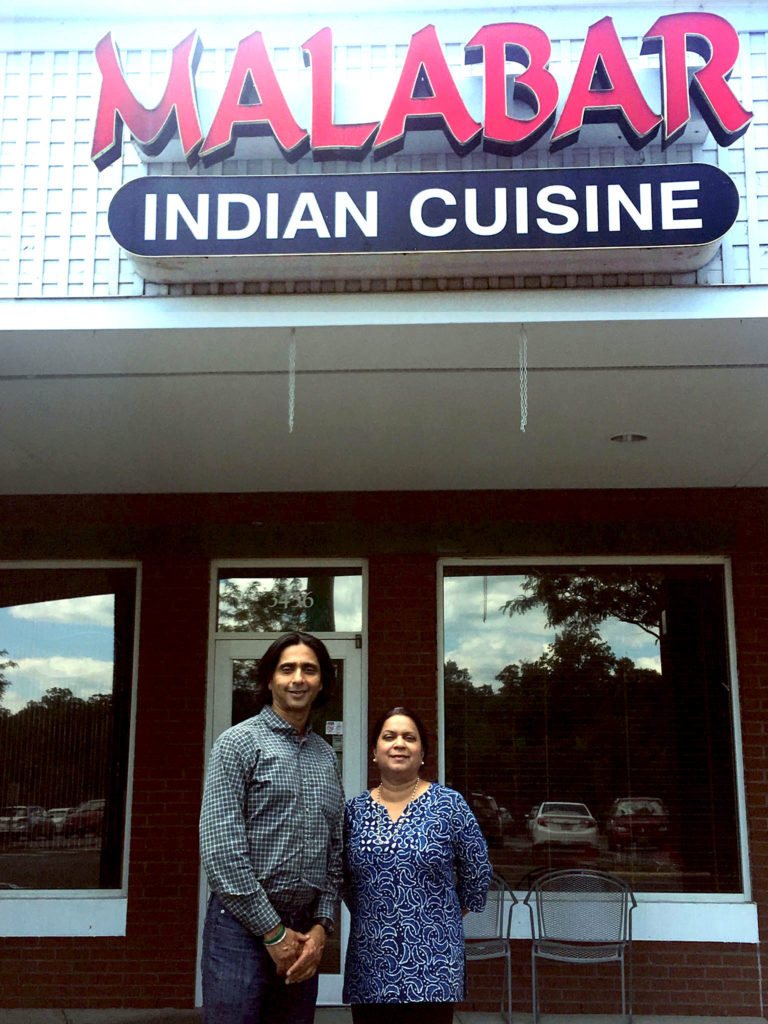
Ram Pai
Malabar Indian Cuisine
(Founded in 2003)
Richmond, Virginia
Ram Pai, and his wife Suguna, are proud to share their culture and to promote healthy eating in Richmond’s far west end. Malabar Indian Cuisine, the restaurant they opened in 2003, features dishes inspired by their native southern India. Both Malabar and India House, their previous restaurant located in the Fan, have received accolades from Richmond Magazine, Style Weekly, and Richmond Times Dispatch throughout their 25 years of service. “It feels very good when somebody recognizes you,” Ram says. “It feels good when you prepare good food, and try to create healthy food habits among people. Those
things give us joy.”
Ram got his Richmond start working in marketing for a friend’s restaurant. Aided by his education in hotel management and by having worked in restaurants to pay his tuition at the University of South Carolina, Ram soon found he was prepared to take on a restaurant of his own. With financial assistance from friends, family, and credit cards, he bought a cafe that primarily served American-style breakfast and lunch. He started incorporating Indian dishes into the menu — which was met with delight — and soon the restaurant began to serve only Indian dishes for lunch and dinner.
The community’s interest in Indian food and culture grew over time. When they first began, there were hardly any Indian restaurants in the area, he says. “Our food was unique. A lot of people at that time didn’t know much about Indian food.” Not only were customers interested in the food, “They were very curious about my culture, where I came from,” he says. And in the process we were helping other people who came to work for us.” Reflecting happily on the last 25 years, “I feel like I have come to know a lot of people in the community and organizations,” he says.
Ram and Suguna also have contributed to the community and surrounding organizations and have been involved with The Festival of India. Ram is a past president of the India Association of Virginia. And while he admits that owning a business has its challenges, he says it also allows for the “opportunity to do what we think [is] the right thing to do,” whether that’s donating gift certificates for nonprofit auctions or just “help[ing] people out when they need it.”
With demographics changing and demand rising, Ram and Seguna see a promising future for Malabar Indian Cuisine. Their move to Western Henrico County occurred before the area was as developed as it is now. Since they moved to Western Henrico County in 2003, new homes and stores have popped up to the point that Malabar has become surrounded by businesses on all sides. Malabar has been a source of Indian dishes for local grocer Ellwood Thompson’s hot bar for over a decade, and in the future Ram and Suguna may put more focus on catering services. Whatever their future may hold, Ram and Suguna are proud to be part of the ever growing story of a diverse Richmond business community.
Back to Top
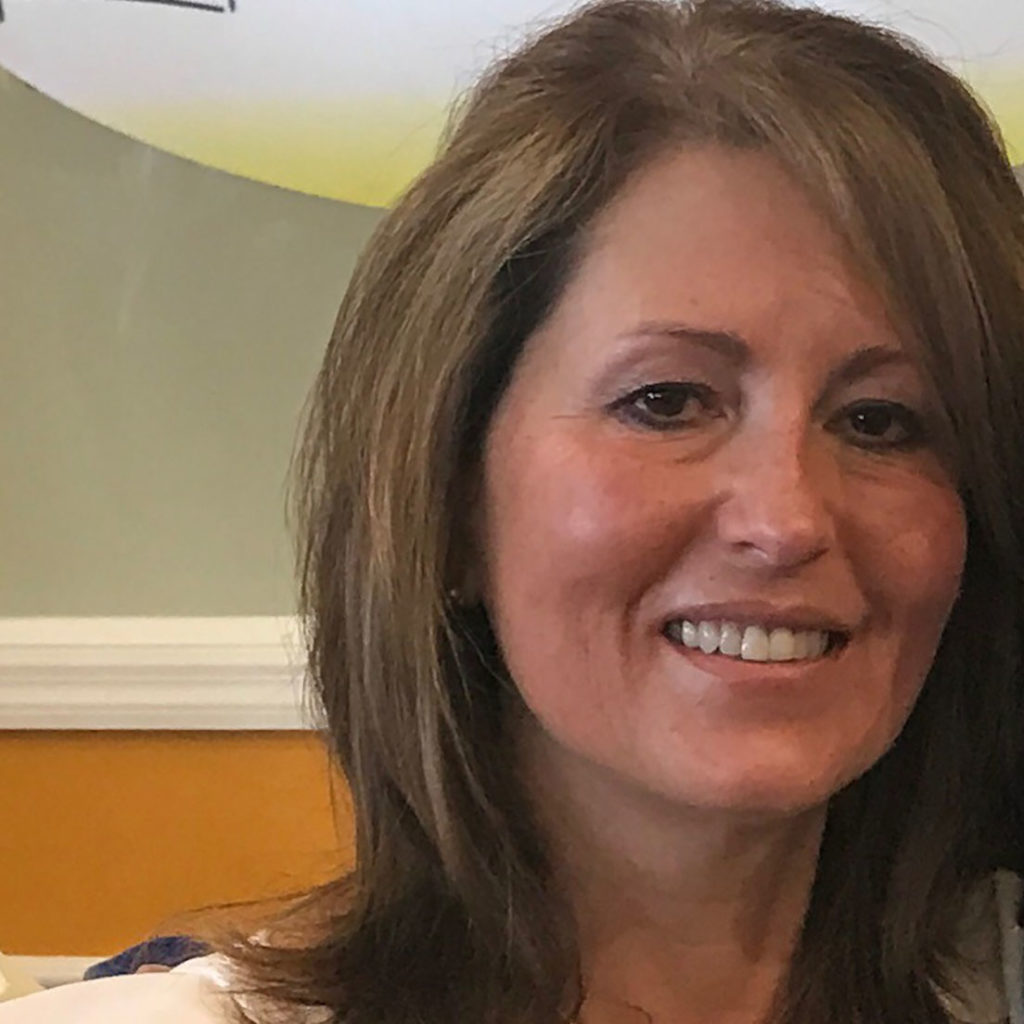
Jackie Krick
ECU Communications
(Founded in 2003)
Manassas, Virginia
For Jackie Krick, a native of Columbia, it is important to reflect on the path that leads you to where you are. For Jackie’s business, ECU Communications, that path began at her kitchen table. When she quit her previous job in marketing, Jackie did not have a plan for what to do next. What she did know, though, was that she wanted to do things differently and focus on solutions for communication issues that federal agencies face.
In the early 1990s, Jackie started a graphic design company, which allowed her to care for her young son. She learned a lot from the seven years she ran the business. Mainly, she says, “I learned the things not to do when you have a business. You need to consider other resources and other networking opportunities to bring your business to the next level.” These lessons, along with an entrepreneurial spirit that she feels she has always had, inspired what would become ECU Communications.
After successfully consulting for other companies, Jackie tapped into the resources of the Small Business Administration’s 8(a) Business Development Program, which allowed her to compete for 8(a) government contracts. Supporting this type of work had been the focus of her prior employment. In four years, ECU Communications transitioned from her kitchen table, to a one-person office, to eventually renting a large office space in in Prince William County, and later owning a building in downtown Manassas.
Jackie now provides resources and guidance to up-and-coming entrepreneurs, advice she wished she had when starting her business. Foreign-born business owners often cause a ripple effect in their communities by reinvigorating the local economy, and Jackie is doing this in very concrete ways. She and her husband, along with another couple, teamed up to buy the building that now houses ECU Communications. On the bottom floor, they began CenterFuse which provides workspaces, including private offices, that are available to rent. They also provide workshops and opportunities to network. Collaboration with others who are also trying to grow a business is a primary goal of this co-workspace. “As I think [about] when I started, and how I started, I would have loved the opportunity to find a place like the one we built downstairs. For that reason, I am very excited to bring that to new entrepreneurs or small businesses that are looking to find a place outside of their home, outside of their kitchen table, outside of their basement.”
Jackie’s efforts to contribute to the community go beyond business. In 2013, she founded Impacto Youth, an organization that focuses on providing educational opportunities to underserved youth in Prince William County. She is also on the board of directors for the Prince William Chamber of Commerce and Leadership Prince William, a non-profit comprised of business leaders and other professionals that fosters community building and youth leadership. She puts great emphasis on being not just involved, but effective, in the local community where “we live, work, and play,” she says. “In order for the world to be better you have to start at the very bottom; it goes from the inside out. Change doesn’t happen by itself.”
The success of ECU Communications and Impacto Youth have the potential to benefit communities outside of Manassas and Prince William County. The growth of these organizations strengthens the surrounding community and provides a launching pad for other entrepreneurs to grow and prosper. “Eventually I would like to take the blueprint of what we do [at Impacto Youth] and put it in other places where you find the same need,” she says “I always want to grow something.”
Back to Top
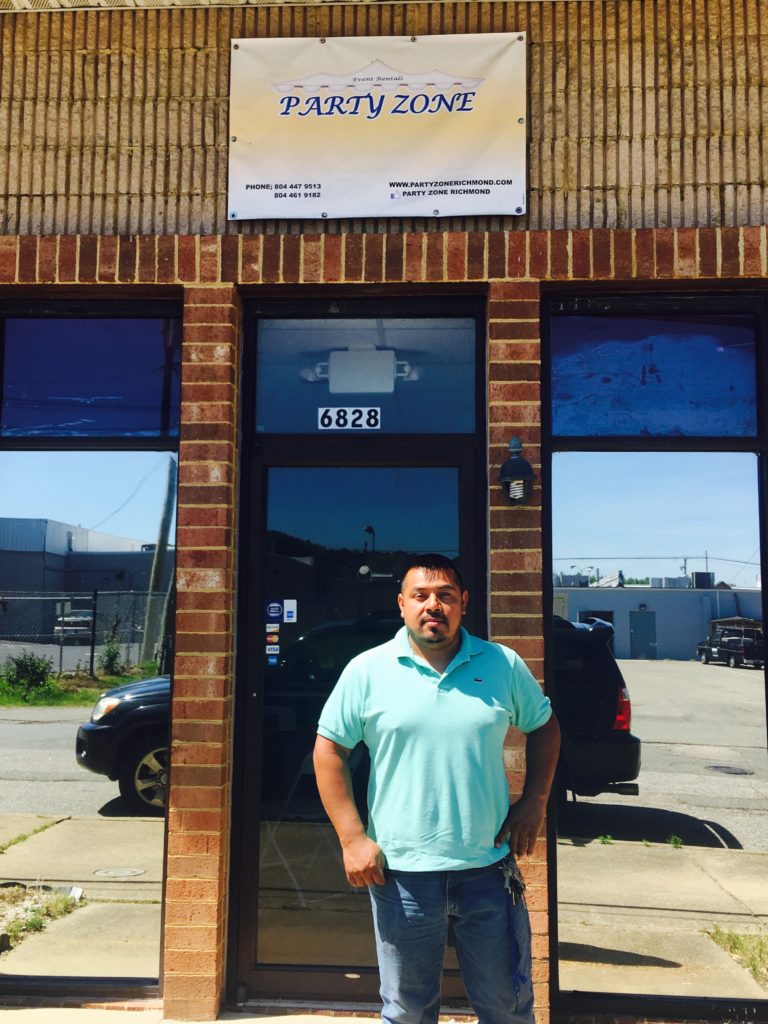
Alberto Tobar
Party Zone
(Founded in 2013)
Richmond, Virginia
Alberto Tobar, a native of Mexico, believes that cost and language proficiency should never impede the occasion. For many years, he worked as the crew leader of a party rental business – building relationships with clients, setting up tables, chairs, tents, and more to create joyous events for families and friends. But on each occasion he found himself reconsidering his role in in the work, the high cost of the events, and who wasn’t able to have access to them. “Sometimes you see the invoices that those big companies charge,” he says. “You say ‘wow, this is a lot of money.’”
Wanting to provide more people with the opportunity to access affordable event rentals, Alberto became part of an increasing number of foreign-born entrepreneurs in the state and founded Party Zone in 2013.
At 33 years old, he had no idea how to begin a business, he says. But he was resourceful, taking the initiative to search for answers, and submit all the financing materials himself. “It takes lots of time, and it takes a lot of stress” to start a business, he says. And today, a business that began with a few small tents, tables, and chairs is now what he considers to be a “one stop for all party rental needs.”
Not only is Party Zone growing, but so is the community around it. Immigrant owned businesses have served as catalysts for revitalization throughout the state. When he opened his business the building was almost completely empty on a major roadway in Chesterfield County. Now, the once mostly empty office building is filling up. Alberto points out many businesses nearby that have moved in within the last two years, as well as a nearby church. He is an active member of the Hispanic Chamber of Commerce and has enjoyed the support of the local community, serving a diverse customer base. Party Zone also is proud to be a bilingual business, eliminating language barriers to the party rental service in Richmond.
With an eye on the future, Alberto plans to expand to other parts of the Richmond metro area. In addition to an office, Party Zone currently occupies a warehouse and a small storage space in Glen Allen which allows for quick deliveries north of the city. In the next three years, He plans to grow Party Zone to two full locations — an office and a warehouse — adding more opportunities in Northside Richmond. Given his current success, his dream is realistic. More than that, it’s one that brings great satisfaction. “It feels good when you have [a] whole entire business working, and just thinking that you did it yourself,” he says. “It feels good.”
Back to Top
